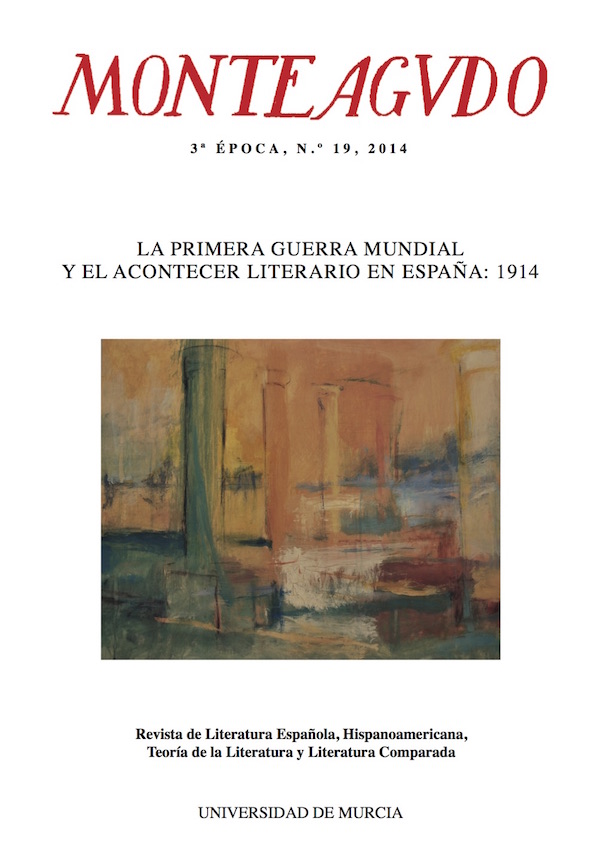Vencedor y para vencer. Blasco Ibáñez y Los cuatro jinetes del Apocalipsis: de la novela al cine
Abstract
In his search for an attractive romantic subject, which could provide him with a quick profit after he had dismissed his project of writing a serial novel on the European War, Vicente Blasco Ibáñez chronicled about it in installments following the events. In 1916, the year of its publication, The Four Horsemen of the Apocalypse was deemed a pro-allies anti-German libel. The unpredictable success of its English translation in 1918 gave way to a film ‒shot in 1921 within the Hollywood studio system‒ that established Rudolph Valentino to stardom.Downloads
Download data is not yet available.
Metrics
Views/Downloads
-
Abstract185
-
PDF (Español (España))203
15-05-2015
Company Ramón, J. M. (2015). Vencedor y para vencer. Blasco Ibáñez y Los cuatro jinetes del Apocalipsis: de la novela al cine. Monteagudo. Revista De Literatura Española, Hispanoamericana Y Teoría De La Literatura, (19), 39–48. Retrieved from https://revistas.um.es/monteagudo/article/view/227131
Artículos
The works published in this journal are subject to the following terms:
- The Publications Service of the University of Murcia (the publisher) retains the property rights (copyright) of the published works, and encourages and allows their reuse under the license of use indicated in point 2.
© Publications Service, University of Murcia, 2011
- The works are published in the electronic edition of the journal under a Creative Commons Attribution-NonCommercial-NoDerivatives 3.0 Spain license (legal text). They may be copied, used, distributed, transmitted and publicly displayed, provided that: i) the authorship and the original source of their publication (journal, publisher and URL of the work) are cited; ii) they are not used for commercial purposes; iii) the existence and specifications of this license of use are mentioned.







